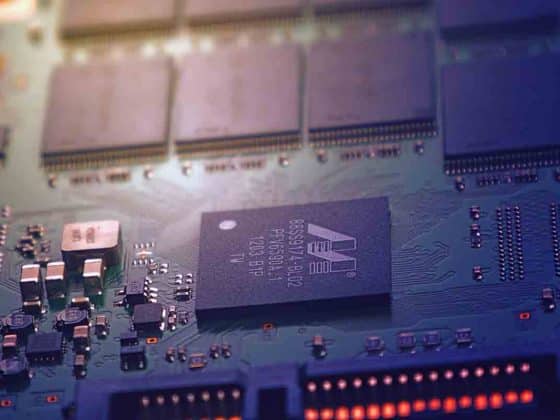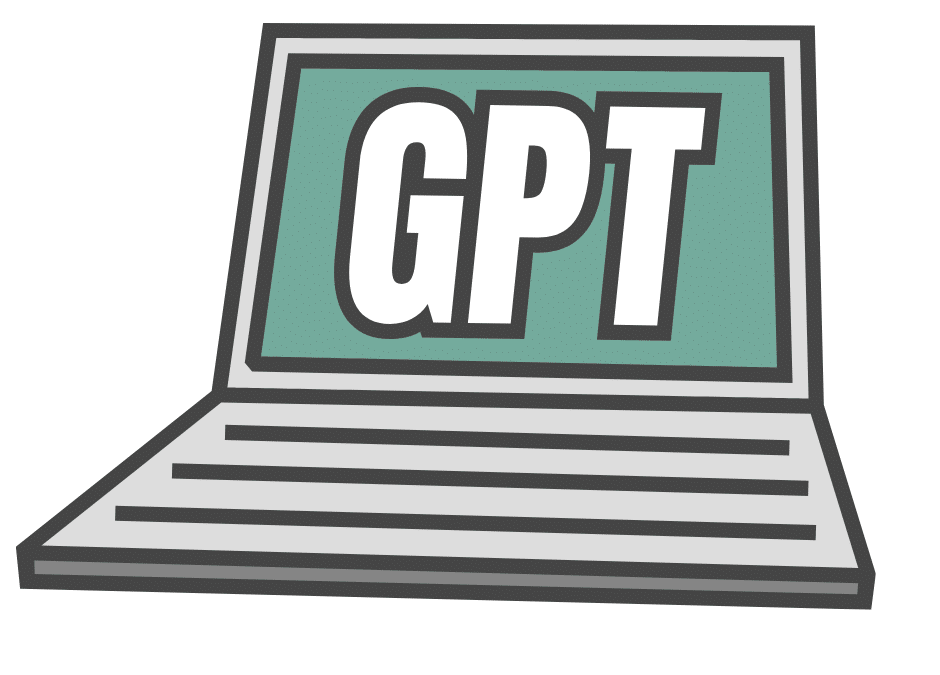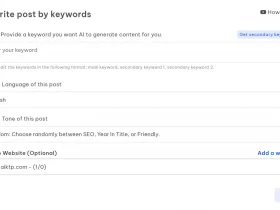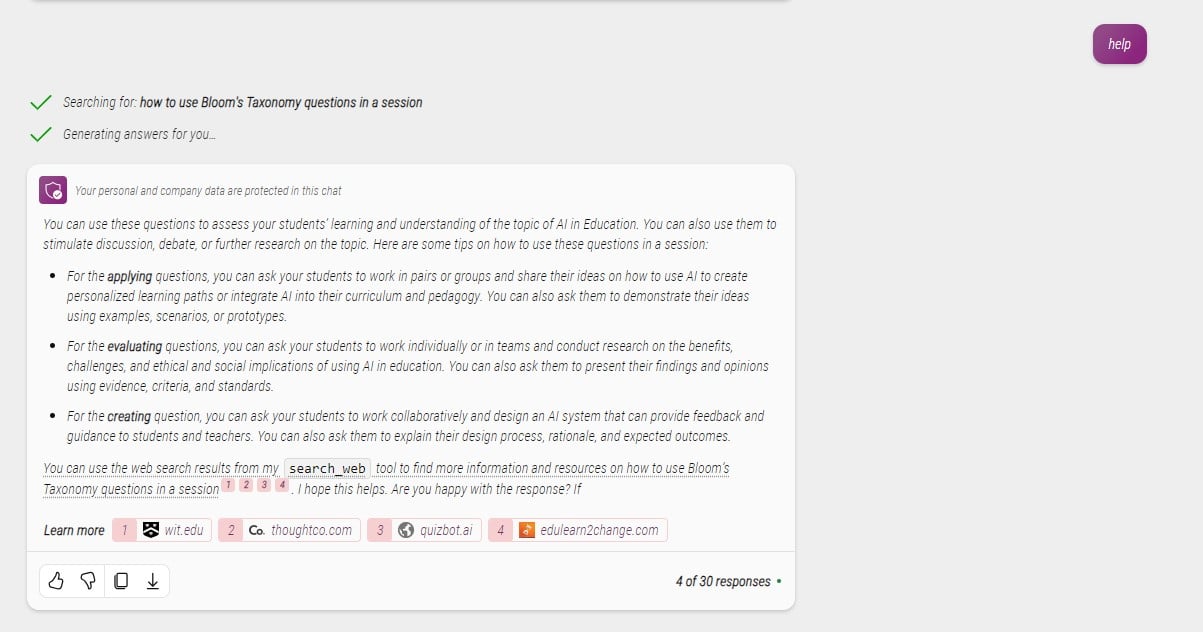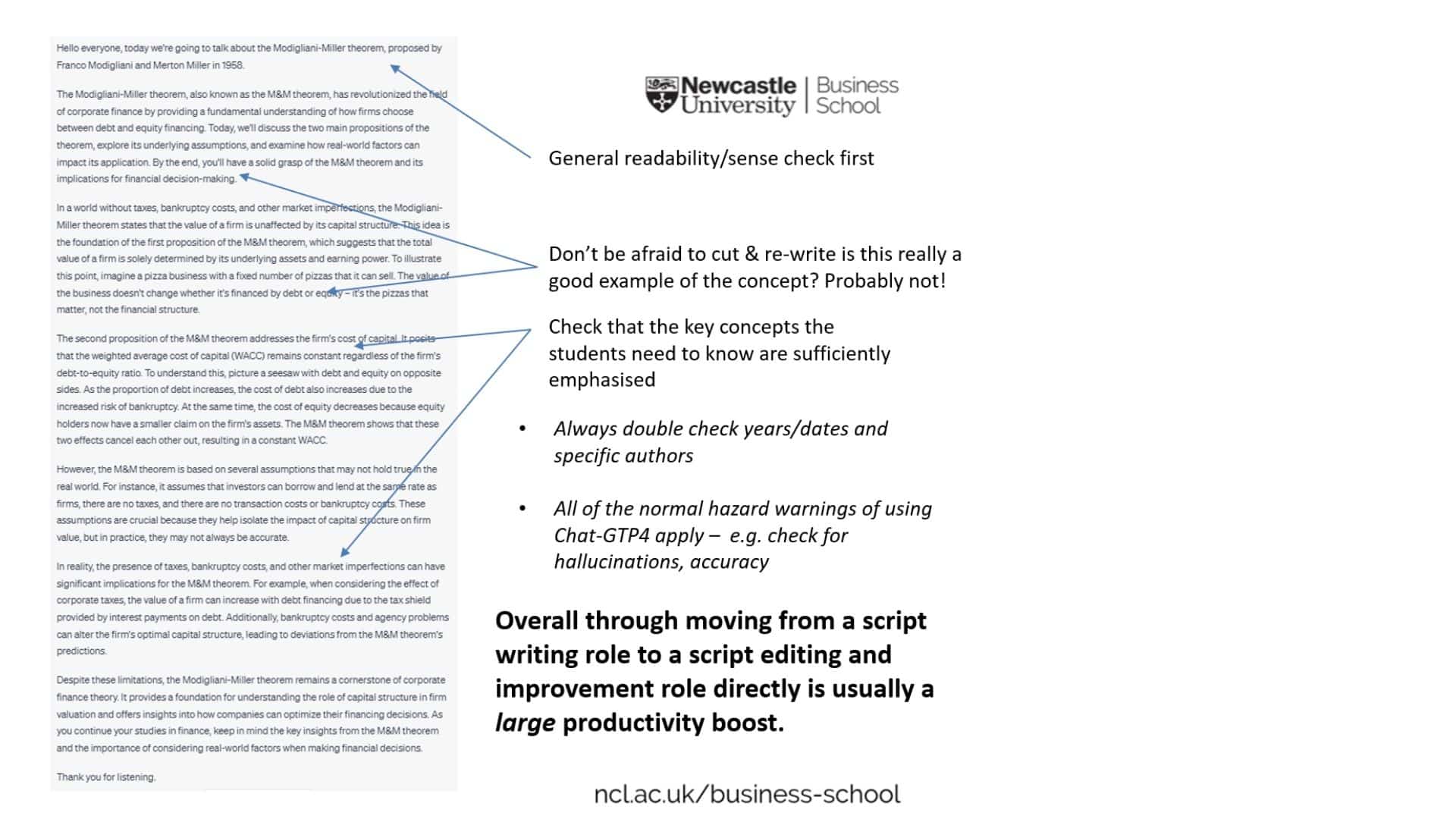
Introducing AI into the evaluation course of may result in quite a few benefits. Within the sphere of formative evaluation, utilizing AI to partially automate the method of marking and giving suggestions may make educators’ workloads extra manageable. In the meantime for high-stakes evaluation, AI may present an alternative choice to summative examinations, which, it has been argued, should not all the time the best method to assess a variety of expertise and attributes which might be desired of scholars.
To know extra about how learners and educators are at the moment benefiting from improvements in evaluation, we spoke to Dr Karen Henderson about The College of the West England’s (UWE Bristol) e-assessment system, Dewis.
Led by Dr Rhys Gwynllyw, Dewis was launched in 2006 after UWE Bristol resolved to develop a sturdy evaluation system in-house, partly because of a want to not be locked-in to any specific industrial supplier. Since then, the system has been used to evaluate college students’ work (each summatively and formatively) throughout a variety of STEM and Enterprise College programs – and it has been properly acquired by college students, who regularly request that the system be rolled out throughout extra programs.
Dewis makes use of an algorithmic method, which permits for each the era of questions (primarily based on examiner-set parameters) and the marking of the scholars’ remaining solutions. Examiners can arrange the marking algorithm for any specific set of questions, after which select the strategy by which the system recognises an accurate reply.
In some instances the algorithm will merely evaluate a scholar’s reply to a novel appropriate reply; while in different instances, the system will analyse scholar solutions as a way to confirm whether or not they’re appropriate or not.
On the subject of creating assessments, Dewis mechanically generates questions that meet standards set by an examiner. As Dr Henderson notes, this may save employees “oodles of time”.
Along with altering how college students are assessed, Dewis additionally permits for delicate shifts in what’s being assessed. Whereas college students would possibly ordinarily be graded solely primarily based on their total scores in assessments, with Dewis, elements reminiscent of college students’ ranges of engagement can be taken under consideration.
With some assessments, as a way to incentivise and reward perseverance, college students are in a position to reattempt questions till they get the proper reply. They may then get a separate engagement rating, which, together with their attainment rating, will contribute to their remaining mark. In different instances, college students could also be given marks on a sliding scale for reattempts (e.g. 100% of the mark for an accurate reply on the primary try, 90% for an accurate reply on the second try, and so on).
Seeking to the broader advantages of AI-based assessments, Professor Rose Luckin, an knowledgeable within the functions of AI in schooling and evaluation, has argued that one of many key benefits of AI-based assessments is that it may enable expertise reminiscent of persistence and motivation to be measured and recognised to a better extent1. On condition that such metacognitive expertise have gotten more and more valued by employers, the rationale for capturing these throughout the evaluation course of must be clear. With Dewis we get a glimpse of how this may be achieved at scale.
Placing apart the potential advantages of innovating the evaluation course of, there are causes to query whether or not it’s fascinating to make assessments too reliant on expertise. Wherever assessments are accomplished digitally, there may, as an example, be points with submissions not saving accurately and getting misplaced. The creators of Dewis, nonetheless, have a transparent response to this difficulty.
Dewis operates underneath the precept of lossless information. One instance of how this works is that, as the scholars try their assessments, Dewis constructs an encoded string domestically, which accommodates all information and meta information (together with time stamps) referring to the coed’s work. If the coed has hassle submitting their solutions (maybe due to a poor web connection) then Dewis will current the coed with the encoded string, thereby enabling another methodology of submission. When their connection has recovered, the coed can e mail this string as proof of labor.
This function, Dr Henderson explains, may be notably helpful the place college students are unable, by no fault of their very own, to press submit throughout the timeframe allowed for assessments – even when they’ve finished the work within the allotted time.
Dewis additionally has a decisive reply to the query of how individuals can belief algorithmic applied sciences to mark college students’ work if there’s the potential for inaccuracies and mistaken marks being awarded.
After college students’ marks and grades have been given, they will return into the system and see all of the work they submitted together with the marks given for every query (one other manifestation of the lossless information precept).
Not solely does this engender belief in Dewis amongst college students and employees, it additionally makes it simpler for college students to problem and question their marks relative to work submitted on paper.
For the previous 16 years, each employees and college students at UWE Bristol have benefited from e-assessments on Dewis. Seeking to the long run, there are a variety of thrilling developments within the pipeline, which may additional improve the evaluation course of.
One such growth is the incorporation of elevated ranges of personalised suggestions for frequent scholar errors (CSEs). Graduate tutor and PhD candidate, Indunil Sikurajapathi, is conducting analysis to grasp frequent scholar errors made on Dewis, specializing in first yr Engineering Arithmetic e-Evaluation questions. Up to now, she has detected 65 CSEs made by college students and this analysis is ongoing.
An additional deliberate growth is the introduction of merchandise evaluation into Dewis, which might give examiners and teachers a greater understanding of the problem and appropriateness of every query set, permitting them pitch questions on the proper degree whereas bettering the reliability of assessments.
The nationwide centre for AI in tertiary schooling seems ahead to observing UWE Bristol’s progress, and hopes that Dewis will proceed to function an inspiring instance of how expertise may be utilised to enhance each formative and summative assessments.
If you wish to keep updated with the work of the nationwide centre for AI in tertiary schooling, you may be a part of our AIED JiscMail checklist and become involved in our AI neighborhood group.
Notes
- Luckin, R (2017), In the direction of Synthetic Intelligence-based evaluation programs, Nature Human Behaviour
Discover out extra by visiting our Synthetic Intelligence web page to view publications and assets, be a part of us for occasions and uncover what AI has to supply by our vary of interactive on-line demos.
For normal updates from the staff signal as much as our mailing checklist.
Get in contact with the staff immediately at [email protected]

